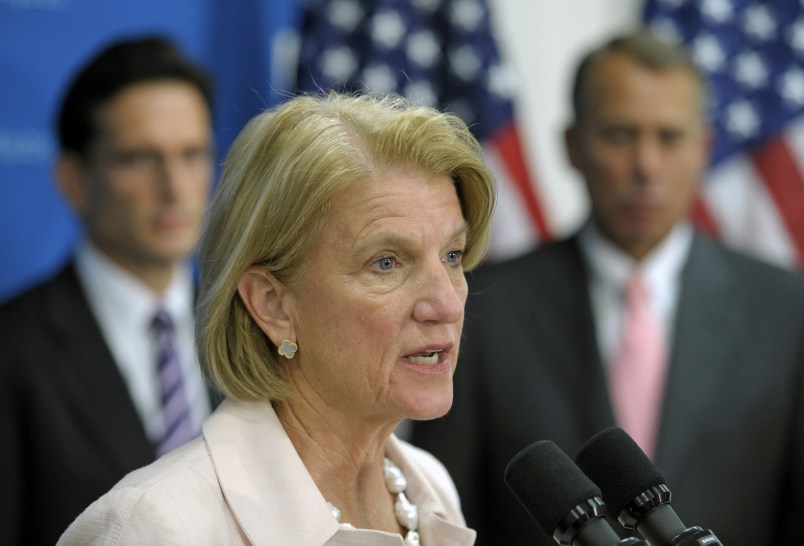The conventional wisdom is that Republicans running in 2014 will be campaigning against Obamacare, attempting to recreate the 2010 magic that saw them make massive gains in Congress and state governments, holding themselves in stark contract to Democrats who are responsible for what the GOP sees as a fatally flawed law.
That’s the narrative, and that’s what Republican strategists would have you believe. But comments — or the lack thereof — from some GOP candidates in state and national elections suggest that opposition might not be as ironclad as previously believed, as the Washington Post’s Greg Sargent has documented. In at least one case, in fact, a Republican in one of the most competitive Senate races in the country effectively endorsed the expansion.
It’s a huge shift from the “defund or repeal” mantra during the government shutdown of October, a possible indicator that some conservatives are recognizing that Obamacare is here to stay — and that proposing to knock the newly enrolled off Medicaid is politically perilous.
In an interview with National Journal last week, Rep. Shelley Moore Capito, expected to be effectively unopposed for the Republican nomination for the open U.S. Senate seat in West Virginia, had some of the kindest words yet for one of Obamacare’s key provisions from a GOP candidate.
“Coverage is great and having more people covered is excellent,” Capito said of the expansion. She included a number of caveats — she’s concerned about long-term costs — but she simultaneously acknowledged that repealing Obamacare is likely an unachievable goal and that aiming to improve the health care reform law while keeping people insured is a preferable pursuit.
“Hopefully, when I get to the Senate and we begin to make changes in the Affordable Care Act, that we will be able to find a way through tax credits and subsidies to keep folks in that insured area,” she said. “And then, as they move up and we grow the economy — because of better policies we’re putting forward — once they move up they’re able to move out of that category, maybe in a more gradual fashion than one day you’re on, one day you’re off.”
Capito’s borderline heresy likely has a very pragmatic source: Medicaid expansion is a pretty good deal for her state. With the federal government covering all of the expansion costs for the first three years and 90 percent thereafter, the Kaiser Family Foundation projects that 116,000 West Virginians would be covered by the expansion by 2022.
In a state with 268,600 uninsured residents, according to Kaiser, that’s a significant breakthrough. Capito seems to have calculated that, although the race leans in her favor, according to the Cook Political Report, she can’t be seen as proposing to strip newly obtained health coverage from her low-income constituents. The top Democratic in the race also staked out support for Medicaid expansion in a statement.
Capito is the most high-profile national GOP candidate to break from the party line, but a deafening silence has also been noted from Republican gubernatorial candidates. They’re equally important, as Medicaid expansion decisions are made at the state level and, if elected, Republican governors would theoretically have the opportunity to roll back the expansion.
But they aren’t vocally advocating for that, according to an analysis from Bloomberg View’s Jonathan Bernstein. He checked out the campaign websites for GOP candidates in six Medicaid-expanding states where Republicans are judged to have a good shot at retaking the governor’s houses.
None of them seems to be making the elimination of Medicaid expansion a pillar of their campaign. It instead goes entirely unmentioned.
“For what it’s worth, early evidence supports the liberal optimist (and conservative pessimist) view: that where it’s in place, Medicaid expansion is here to stay,” Bernstein wrote.
Don’t expect every Republican to tack to the center this way. A Republican candidate for the open Iowa U.S. Senate seat has touted her vote against that state’s Medicaid expansion plan. But others are lightening their tone — the top Republican candidate for the Michigan Senate spot said in November that she was “past” defund and repeal, flipping to a “fix it” position similar to the one outlined by Capito in her interview last week.
It’s not a wholesale conversion. But it’s major movement given conservatives’ unyielding anti-Obamacare doctrine of the last few years.






